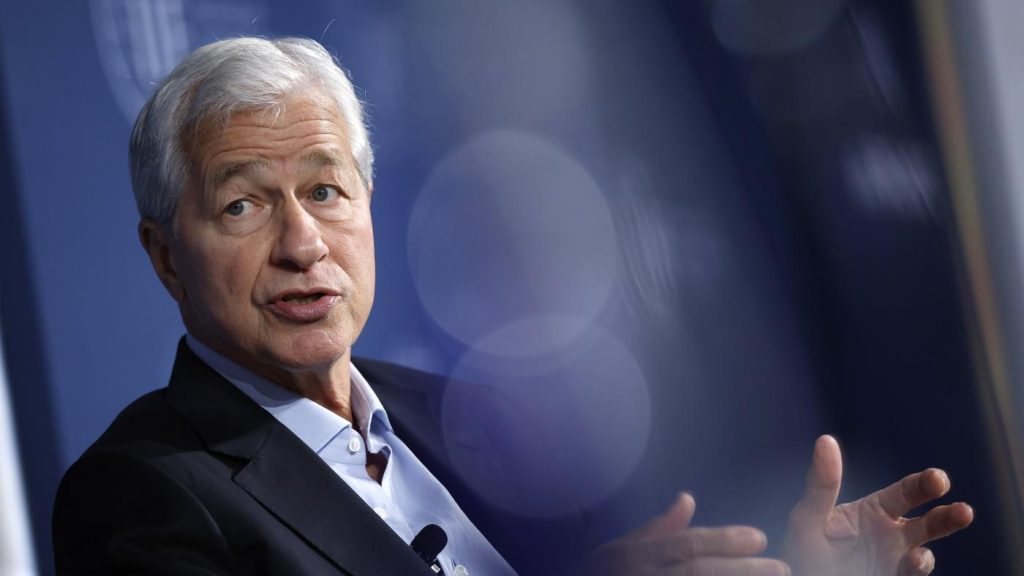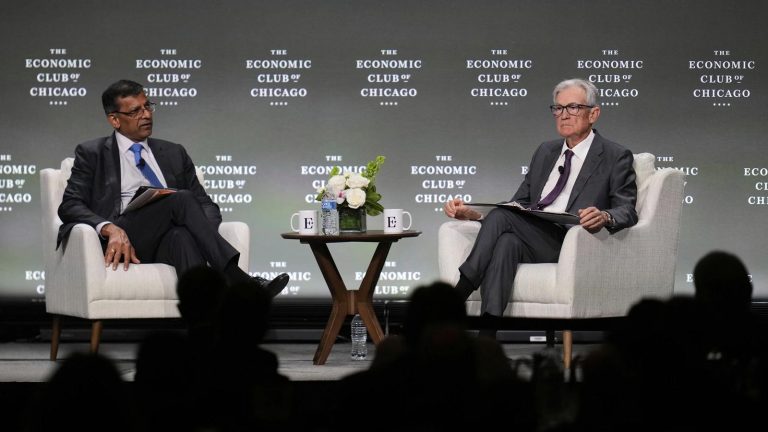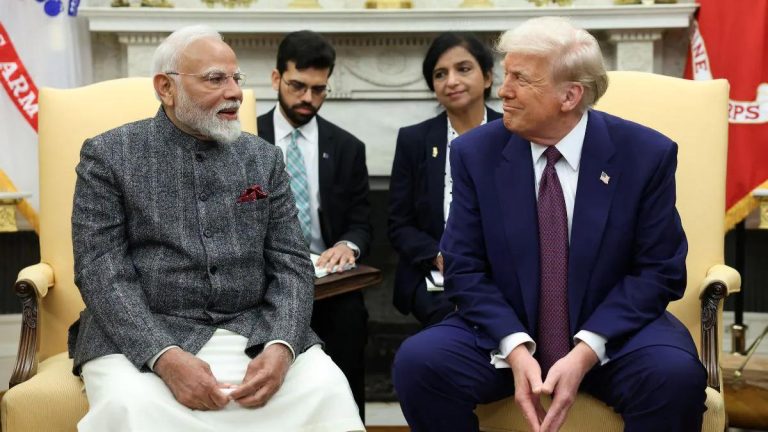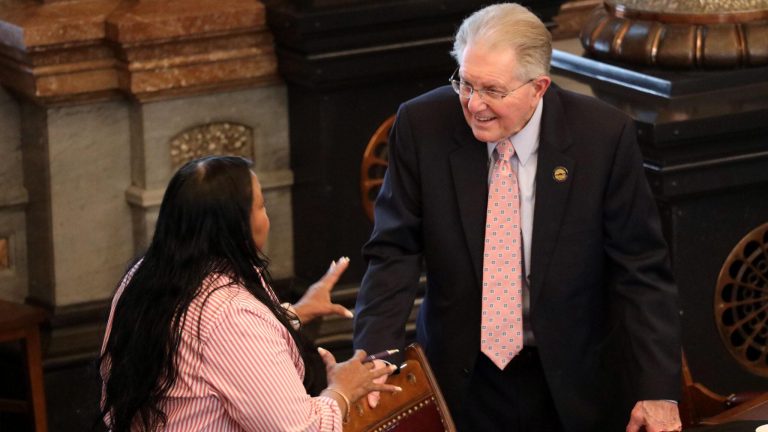
Wall Street Titans Sound Alarm Over Trump’s Tariff Blitz | Image Source: www.npr.org
LONDON, United Kingdom, 7 April 2025 – President Donald Trump’s latest escalation in trade tariffs has caused turmoil in global markets, taking strong setbacks from some of the most powerful financial and business names. With a new series of import taxes coming into effect this week – some up to 50% – a growing chorus of wealthy entrepreneurs, including several Trump supporters, publicly warn the terrible economic consequences. From Wall Street to Washington, the feeling is clear: uncertainty becomes fear and fear becomes a paralysis of investment.
In the middle of the storm is the billionaire hedge fund manager Bill Ackman, founder of Pershing Square Capital Management, who previously supported Trump during the electoral cycle of 2024. In a surprising reversal, Ackman described tariff expansion as a “economic nuclear war,” urging the administration to call it a 90-day period. Their appeal is not rooted in politics, but in the economy: the growing concern that these aggressive levies could lead the United States and its trading partners to a total recession.
“Business is a game of trust,” Ackman wrote on X (before Twitter), adding that Trump’s actions erode the confidence of business leaders around the world. The billionaire warned that if this path continues, the United States could move towards a “self-induced nuclear winter,” a feeling that echoed in conference rooms and banking reports on all continents.
What are Trump’s prices and why now?
President Trump’s current tariff program revolves around the idea of “reciprocal trade”. It states that countries such as China and members of the European Union have imposed more severe taxes on imports of US goods that the United States has imposed on them. In response, it announced a 10% benchmark tariff for all imported products, which came into effect on Saturday. Even stricter tariffs for countries with the largest trade imbalances should start this Wednesday – 34% in China, 20% in the EU and up to 50% in some Asian nations.
To defend this plan, Trump told journalists on board the Air Force One: ”Sometimes you have to take medication to fix something. »
The White House swiftly dismissed rumors of a pause in the rollout as “fake news,” reinforcing the administration’s resolve to push forward despite widespread backlash.
Why are entrepreneurs so worried?
Many business leaders argue that tariffs are not only extreme, but also low in timing. JPMorgan Chase CEO Jamie Dimon, one of Wall Street’s most influential voices, warned that taxes will likely increase inflation and reduce economic growth. In his annual letter to shareholders, Dimon said, ”The faster this problem is solved, better because some of the negative effects increase cumulatively over time and would be difficult to reverse.”
JPMorgan subsequently raised its recession odds from 40% to 60%.
According to a flash survey conducted by CNBC on Monday, 69% of CEOs now expect a recession during the year and 37% plan to reduce the number. The atmosphere in U.S. corporate consulting rooms has shifted from cautious optimism to direct alarm. “It’s stupid and illogical,” said an unnamed CEO at CNBC, who summarizes the growing frustration with the economic management of the administration.
Who’s talking outside and what do they say?
Jamie Dimon is not alone. Elon Musk, perhaps Trump’s senior technology figure, said he was in favour of a zero-tariff situation between the United States and Europe. In a virtual appearance with Italian Deputy Prime Minister Matteo Salvini, Musk launched the idea of a free trade area across the Atlantic, a distant cry in the tone of the confrontation that came out of Washington.
Meanwhile, billionaire investors Stanley Druckenmiller and Ken Fisher added their voices to the protest. Druckenmiller made it clear that he does not support prices above 10%, while Fisher described Trump’s plan as “a stupid, incorrect, arrogant and ignorant argüist.”
Even Richard Branson, Virgin Group’s founder, weighed in, warning that the policies were a “colossal mistake” that could bankrupt countless small and medium-sized businesses.
How do markets react?
The market response was quick and unforgivable. Asian and European indices fell sharply on Monday, and US futures marked another day of loss. According to data collected by Bloomberg and CNN, investors are concerned that retaliatory tariffs, supply chain disruptions and increased entry costs create a dangerous mix of inflation and stagnation.
Goldman Sachs updated its forecast, increasing the likelihood of a US recession to 45%, compared to just 35% a week earlier. Analysts attributed the change to “a marked tightening of financial conditions, boycotts of foreign consumption and a steady increase in political uncertainty”
Simon MacAdam echoed this sentiment, explaining that companies are likely to retain the investment due to the “almost uncertain” tariff landscape. ”If these tariffs were to be negotiated again in a few months, you would waste your time investing hundreds of millions of dollars in new plants… in the United States. »
he told CNN.
What are you doing? Does this mean for consumers?
An immediate consequence of tariffs is the likelihood of price increases. Tariffs work like import taxes, which means that businesses will absorb the cost or pass it on to consumers. With many U.S. products that depend on global supply chains, especially in electronics, automobiles and raw materials, the impact on daily prices could be significant.
As billionaire Richard Branson pointed out, the weakening of the US dollar only worsens the situation, making imports more expensive and fuelling inflation. Small businesses, which are already fighting against the debt of the pandemic era and labour shortages, are facing arduous battle. The National Federation of Independent Business (NFIB) reported a sharp decline in business optimization this month, citing business uncertainty as an important factor.
Is there a way forward?
Critics like Ackman think so. The hedging fund manager proposed a 90-day break to renegotiate existing trade agreements. Their reasoning is pragmatic: recalibrate without exploding economic relations. Ackman argues that such a moment could “induce billions of dollars of new investment in our country”
Trump always seems. Responding to a journalist’s question about market volatility, he twisted: “I think your question is so stupid. I mean, I don’t want to lower anything, but sometimes you have to take medication to fix something.”
His tone signals not just commitment, but an ideological belief in the cleansing effect of tough economic measures.
But this belief is being tested. According to NPR reports, the business world, traditionally cautious in the criticism of Republican administrations, has become more vocal as bets rise. Managing Director of BlackRock Larry Fink, speaking at the New York Economic Club, said: “Most CEOs say we’re in recession right now. »
It remains to be seen whether or not tariffs will achieve the objectives of protecting U.S. jobs and reducing the trade deficit. But the first signs suggest a long way to go, paved with uncertainty, inflationary pressures and global economic realignment.
As Wall Street clings to the implications, one thing is clear: America’s trade war is not just with opponents. It is increasingly with its own economic actors.
In the coming weeks, the eyes will be turned to the question of whether cold heads prevail or whether deep-rooted ideology further pushes politics. Because as Ackman pointed out in his now virtual post, “that’s not why we vote”
In any case, the clock marks, and investors, business owners, and every day The Americans closely monitor – wallets in hand, waiting for the next movement.



